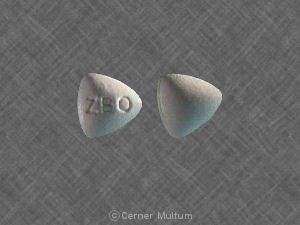Arava and Alcohol/Food Interactions
There are 2 alcohol/food/lifestyle interactions with Arava (leflunomide).
Leflunomide Food
Moderate Food Interaction
GENERALLY AVOID: The consumption of alcohol during therapy with leflunomide may potentiate the risk of liver injury. Leflunomide has been associated with hepatotoxicity, including elevated liver transaminases, hepatitis, jaundice/cholestasis, hepatic failure, and acute hepatic necrosis,
MANAGEMENT: Patients should be advised to avoid excessive alcohol use during leflunomide treatment.
References (3)
- Cerner Multum, Inc. "UK Summary of Product Characteristics."
- Canadian Pharmacists Association (2006) e-CPS. http://www.pharmacists.ca/function/Subscriptions/ecps.cfm?link=eCPS_quikLink
- Cerner Multum, Inc. "Australian Product Information."
Switch to consumer interaction data
Leflunomide High Blood Pressure (Hypertension)
Moderate Potential Hazard, Moderate plausibility
leflunomide - hypertension
Hypertension was reported as an adverse reaction in patients on leflunomide. Blood pressure should be monitored during treatment and periodically thereafter as this agent can increase the blood pressure in these patients.
References (1)
- (2001) "Product Information. Arava (leflunomide)." Hoechst Marion Roussel
Switch to consumer interaction data
Arava drug interactions
There are 675 drug interactions with Arava (leflunomide).
Arava disease interactions
There are 7 disease interactions with Arava (leflunomide) which include:
- immunosuppression
- liver disease
- peripheral neuropathy
- pulmonary toxicity
- renal dysfunction
- tuberculosis
- hypertension
More about Arava (leflunomide)
- Arava consumer information
- Check interactions
- Compare alternatives
- Pricing & coupons
- Reviews (32)
- Drug images
- Side effects
- Dosage information
- During pregnancy
- Generic availability
- Drug class: antirheumatics
- Breastfeeding
- En español
Related treatment guides
Drug Interaction Classification
| Highly clinically significant. Avoid combinations; the risk of the interaction outweighs the benefit. | |
| Moderately clinically significant. Usually avoid combinations; use it only under special circumstances. | |
| Minimally clinically significant. Minimize risk; assess risk and consider an alternative drug, take steps to circumvent the interaction risk and/or institute a monitoring plan. | |
| No interaction information available. |
Further information
Always consult your healthcare provider to ensure the information displayed on this page applies to your personal circumstances.


